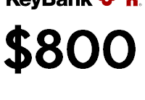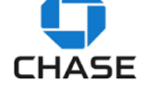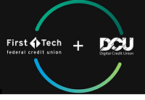Lots of banks (and credit unions) offer sign up bonuses when you set up a new account with them, they are hoping that by offering these bonuses you’ll sign up for an account and make it your primary account. We can use the banks greed to our advantage and turn an easy profit. In this guide we’ll show you how to easily take advantage of these bonuses to add some extra income to your bottom line, without wasting a heap of time and getting hit with fees. Many readers are able to generate $2,000+ a year from these bonuses.
Note: Unlike other sites, we don’t do deals with financial institutions when it comes to bank accounts or credit cards. This let’s us remain unbiased and keep the readers best interest in mind rather than pushing you towards products that pay us the most. If you like our content, we just ask you to share it with others so more can benefit from it.
Contents
Popular Requirements & How To Easily Meet Them
Pretty much all banks require you to complete certain actions to receive the sign up bonus. Below are the most common requirements and a few little tips & tricks on how to easily meet those requirements.
- Direct deposits. Probably the most common requirement and one people think is the most difficult to meet. Usually the fine print on these bonuses says that it must be a deposit from your employer or a government benefit. Thankfully for us, most banks can’t differentiate between a simple ACH transfer and a payroll payment. We keep a handy list of what’s worked to trigger the direct deposit requirement for each financial institution here [Also read: how to use our direct deposit page]. If you can easily change your payroll, even better!
- Debit card transactions. Another popular requirement, you could just put regular expenses on your debit card but then you’d be missing out on credit card rewards points (and more spend towards minimum spend requirements for credit card sign up bonuses). There are a few ways you can generate lots of small debit card transactions easily (and online), we list those here.
- Bill payments. This one is easy to meet, rather than paying a bill in full you can instead split it up in smaller payments (just make sure it’s paid in full before the due date) to generate multiple bill payments. Sometimes the fine print will say that only one payment per biller counts, but chances are you have multiple bills to pay anyway.
Avoiding Fees
There are two main fees you need to think about when it comes to these bonuses: monthly fees & early account termination fees.
- Monthly fees. It’s almost always possible to waive these fees by meeting some sort of requirement (often the same ones required to trigger bonuses, see above). In most cases the monthly fee is waived for the first month or two, giving you some time to get this set up but this varies by financial institution. Once you know what the fee is and how to avoid it, it’s pretty easy.
- Early account termination fees. This one is a little less obvious, but if you close an account before a certain time then you’ll usually be charged a fee. Financial institutions do this because it costs them money to set up new accounts (especially when they are offering a bonus) and they want a chance to recoup that money. Most banks will charge this early account termination fee if the account is closed within 90 or 180 days, obviously this is easy to avoid if you know about it in advance.
- Other misc fees. In most cases you won’t actually be using these new accounts as your primary checking account, so you shouldn’t need to worry about ordering checks and the like.
Where To Find Bank Bonuses
There are a few different ways to find bank account bonuses:
- Our site. Obviously this is the best place to find bank account bonuses. New bank bonuses can be found here. We also update this page with the best bank bonuses. The bonus of our site, is we let you know about all of the fees, requirements, if it’s a soft or hard pull and whether you can fund with a credit card. The bank account reference sheet can also be useful.
- Find them yourself. These bonuses are actually quite easy to find yourself, just find the web address of banks in your area and in google type in site:<url of bank you found> bonus. You can replace the word bonus with anything, for example promotion. If you find anything, let me do the hard work for you by finding out more about the bonus. Just let me know by using the contact us form.
- Forums. A lot of forums will post these bonuses, although they will usually only post the nationwide ones (or the ones that are available to a large portion of the population). FatWallet Forums used to be the best source, but after being acquired by Ebates/Rakuten it no longer exists. Reddit.com/r/churning has a weekly bank account bonus thread that sometimes contains new deals.
Additional Tips
- Credit card funding can be a nice little side bonus. A lot of these financial institutions let you initially fund the bank account with a credit card, letting you earn credit card rewards points or meet minimum spend requirements for a credit card sign up bonus. Most of the time these transactions will code as a purchase, but sometimes they code as a cash advance. That’s why we recommend you set your cash advance limit to zero (or as low as possible and try to fund over that limit). We also provide a database that shows what did/didn’t code as a cash advance for each financial institution in the past, you can find that here.
- Keeping organized is key. If you’re not organized, then things can quickly get hard to manage. I’d recommend at minimum keeping a spread sheet that contains some basic information about each bonus for example: date opened with a screenshot of the bonus, date the requirements were met, date the bonus posted, date the account was closed. You can also include some additional information such as: what the early account termination fee is and how long the account needs to be kept open to avoid that and monthly fees and how they are avoided. You can view a sample spreadsheet here.
- Don’t call the bank. If you’re not following the rules of the bonus to the letter, then there is no point in calling the bank as you’re just drawing more attention to your account. For example, if you’re using an ACH transfer to trigger the direct deposit requirement you don’t want to call them and ask if it counted as a direct deposit as then they’ll know it wasn’t a real direct deposit. More reasons for not calling the bank can be found here.
- Sometimes bonuses are pulled early. Don’t rely on a bank bonus end date being accurate, often bonuses are pulled before that end date. This is generally more likely to happen when a bonus is nationwide or more generous than normal.
Final Thoughts
You can find out beginners guide to credit card bonuses here. We spend a lot of time finding new bonuses and writing them up, so if you enjoyed this post or any of our bank account content please consider sharing it.
If you have any questions, no matter how basic they are please ask in the comments. I just ask you to read this post (and the F.A.Q’s below) first in full. If you’re going to answer somebodies questions in the comments, remember this post is for newbies so please be polite and patient (and remember nobody is forcing you to answer).
F.A.Q’s
Does opening bank accounts hurt my credit? Will it affect getting approved for a mortgage/home loan?
Most of the time your credit won’t be touched, deposit accounts have their own credit reporting agency called ChexSystems (not all banks will use ChexSystems, some will use an alternative such as Early Warning Systems). This agency collects & compiles information regarding deposit accounts, much like the nationwide credit reporting agencies (Experian, Equifax & TransUnion) collect & compile information regarding credit accounts (e.g credit cards, home loans & auto loans).
When you open a new deposit account (e.g a checking account) most banks will request a copy of your ChexSystems credit report and then either not request your credit report at all, or do a soft pull on your credit report (meaning it’s not affected). In some cases, a hard pull is done on you credit report as well.
When we post bank account bonuses, one of the things we look at is whether a hard or soft pull is done on your credit report. In fact we have a dedicated page that lists what financial institutions have done in the past. If you just stick to banks that only do a soft pull, then your credit report & credit score won’t be affected. In general if a bank asks you to opt it to overdraft protection doing so will result in a hard pull.
How many bank accounts can I open in a year?
We’ve answered this question before, read our full answer here. Keep in mind that is a conservative answer and some people do a lot more than that. Some financial institutions are sensitive to too many inquiries and others don’t care, more on that here.
Do I have to pay taxes on these bonuses?
Bank account bonuses are treated as interest and as such you need to pay taxes on these bonuses. Usually you’ll receive a 1099-INT form at the end of the year. Even if you don’t receive this form, it’s my understanding you still need to pay tax on the bonus. As always you should consult a tax professional.
How can I close these accounts?
This varies from bank to bank, we list the easiest ways to close accounts here and also datapoints on what works/doesn’t work for each financial institution here.
When should you close an account?
Some financial institutions have an early account termination fee that is charged if an account is closed within 3-6 months. Others don’t have such a fee but it’s generally advisable to keep the account open for at least six months so hopefully the bank doesn’t see a lot of accounts being quickly opened and terminated after the bonus posts.






